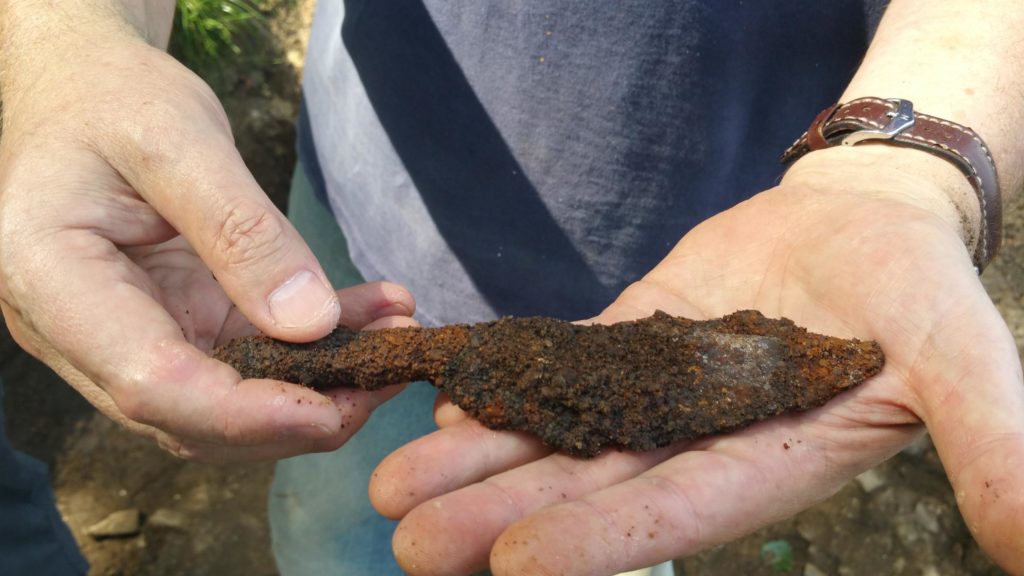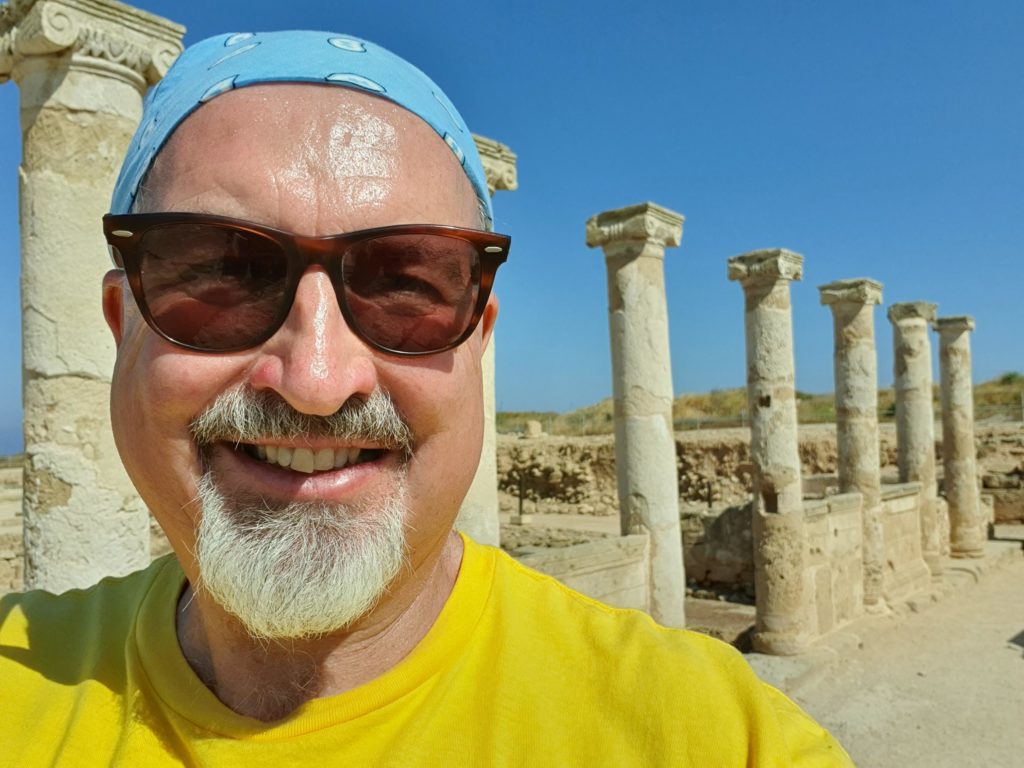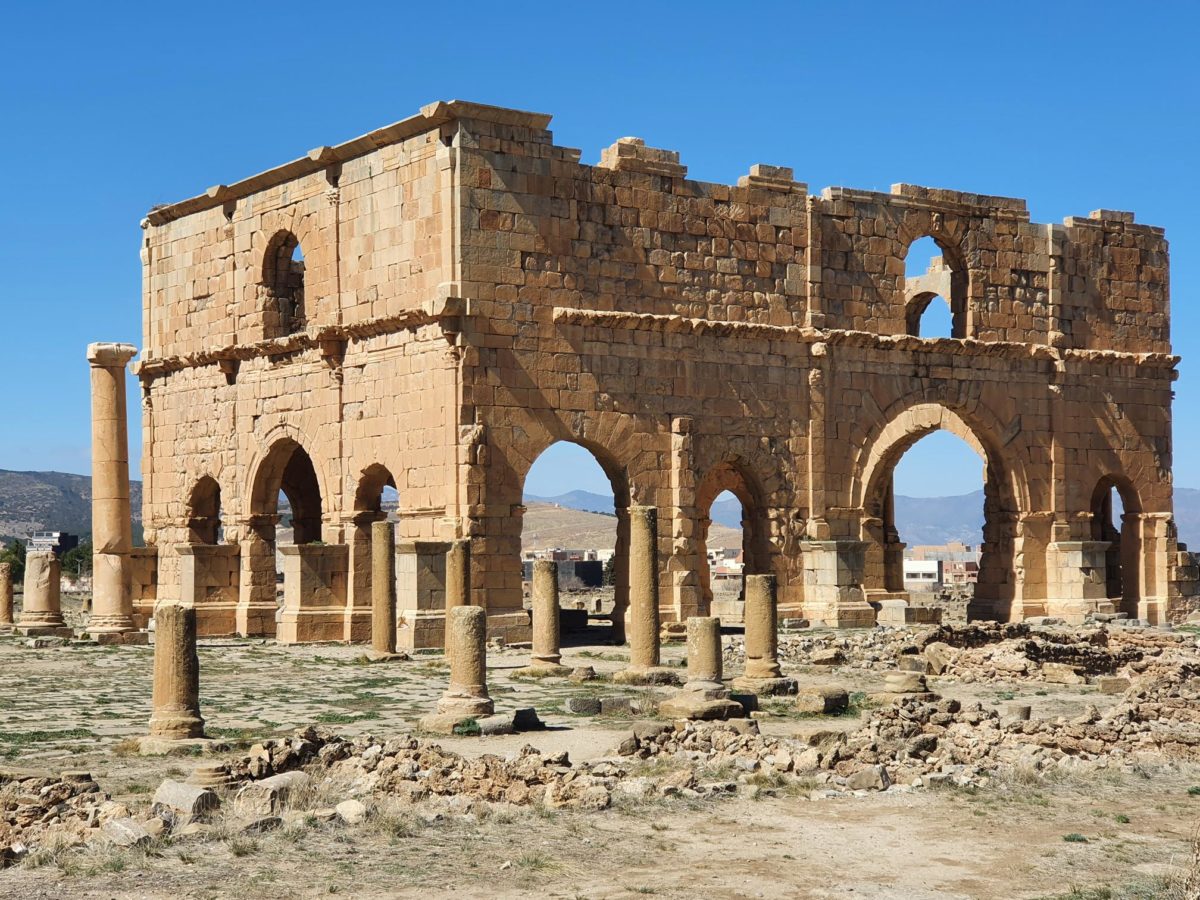Archaeologist and bestselling author Simon Elliott is no stranger to history — from co-directing a field investigation at a Roman villa in the Medway Valley in England to exploring historical riddles like the fate of Rome’s missing legion, he is passionate about rediscovering the ancient world. Featured on many broadcast media including the BBC, the National Geographic and Discovery channels, as well as in Military History magazine, Dr. Elliott shared his experiences with Historynet and insights about what it takes to be an archaeologist today.
MHQ: What motivated you to become an archaeologist?
S.E: As far back as I can remember I have always had a love of history, the classical world, and archaeology. One of my earliest memories is drawing a picture of a Roman chariot with wax crayons! Later, when writing the thesis for my A Level in History, I chose the subject of Neanderthals and their relationship with modern humans.
Then, when I was just 18 years old, I remember picking up a copy of the Council for British Archaeology’s newsletter in my local post office, choosing my first dig in the listings there, and that summer going for two weeks. Amazing! It was a Mesolithic axe factory atop Hengistbury Head in Dorset. What an adventure! And going full circle, I am now honored to be a trustee of the CBA.
GET HISTORY’S GREATEST TALES—RIGHT IN YOUR INBOX
Subscribe to our Historynet Now! newsletter for the best of the past, delivered every Wednesday.
What skills does an archaeologist need today?
Many and varied, given there are so many different types of archaeologist and archaeological activity. For example, I describe myself as a landscape archaeologist, using an analytical personal skillset to tease out every last piece of interpretative data from a site or artifact, and then presenting the big picture overview of what we are looking at.
Other great friends in the discipline love practical archaeology, excavating a site for months on end, while others use all kinds of science to provide academic rigor to our discipline and profession.
Above all though, it really helps to have an inquisitive mind!

What are the most interesting artifacts you have worked with?
I would say that my top three finds while excavating or researching are a beautiful Mesolithic axe found while walking Hector (my golden doodle archaeological sidekick), a Roman knife I found while helping lead the excavations on a Roman villa site in the Medway Valley (this came from a Roman kitchen which at some stage had burnt down catastrophically), and the rim of a huge Roman amphora, which I found by tripping over it while examining a possible Roman burial site, given it was covered in foliage!
Much of your research focuses on ancient Roman military history. What kinds of Roman military sites have you analyzed?
Almost too many to mention! My favorite in Britain is the Saxon Shore fort site at Richborough on the east Kent coast, which is a time machine for the entire Roman occupation of Britain. It was likely near here that Caesar twice landed, then later that the Claudian invasion took place in AD 43, where Domitian built his monumental arch to celebrate Agricola ‘conquering’ the far north of Britain, and finally where the last coin hoard found in Britain was located. This was an early 5th century AD pay chest sent there from the continent, but when it arrived the military unit it was for had left. Given the coins were base metal, they were useless to the local community and so were buried.
Meanwhile, recently I was lucky enough to twice visit Timgad and Lambaesis in Roman Algeria. These were a colonia veteran settlement and legionary fortress for legio III Augusta, the Roman legion there.
Both are immediately north of the beautiful Aures Mountains. Just standing there beneath copper blue skies knowing the Sahara was just to the south was amazing.

Is there a particular site (or sites) you have investigated that you have found most intriguing?
My villa site in the Medway Valley, given we have been there for over five years and every season brings along something new to ponder. Most recently, crop marks in very dry weather seem to indicate our own villa was replaced towards the end of the Roman period with one twice the size!
popular culture creates myths about ancient warriors, like the Vikings. What are the biggest misconceptions about the Roman army?
I think people often overlook how amazing Roman legionaries were as engineers. In the Roman world, with no nationalized industries, civil service of the scale we have today, or free market to raise capital for major engineering projects, the only asset the Roman state could turn to do things was the military.
Has your field work changed the way you view Roman military history in general?
A fantastic question! Actually my field work has really helped me to challenge some received wisdoms!
For example, my recent work in Roman Algeria helped me identify that the post-Vandal Byzantine phase of most of the major urban centers wasn’t a revival of the wealthy late Roman phase, but rather a military occupation.
New structures built there at this time are small forts with huge numbers of water troughs, usually constructed right on top of the earlier Roman forum at each site. This tells me that when the Byzantines came back to “save” the locals, they weren’t welcome and were reduced to policing this vast region with cavalry.
Tell us more about Your forthcoming book, “Roman Britain’s Pirate King,” which focuses on a Roman naval leader turned outlaw?
Carausius is a key figure in British history, originally lost in the mists of time because he took on the Roman imperial center in the form of the emperors Maximian and Diocletian, ultimately lost, and was effectively canceled by them.
I found his story fascinating and therefore decided to dig deeper, finding every single contemporary reference about him. I then set this against the latest archaeological data and was able to write this biography of him — the first.
Read the full interview about “Roman Britain’s Pirate King” in Military History Quarterly‘s digital newsletter exclusive. Sign up for the newsletter if you’re a subscriber. If not, subscribe to MHQ now.
historynet magazines
Our 9 best-selling history titles feature in-depth storytelling and iconic imagery to engage and inform on the people, the wars, and the events that shaped America and the world.






